“Just do it”, the famous Nike slogan implies that if we just stick at it we will achieve our goals, but does that work when it comes to New Year’s resolutions? Joanne Dickson and colleagues (2021) examined the pursuit of New Year’s resolutions to assess what helps people stick to the resolution as well as how it affects their mental wellbeing.
They examined two aspects of pursuing goals and the influence on mental wellbeing. The two aspects of pursuing goals were, goal flexibility and goal tenacity. Goal flexibility is the ability to view setbacks with equanimity and adjust goal pursuit as required. Goal tenacity is defined as persistence in striving to reach a desired goal outcome under difficult conditions
Participants in the study were instructed that the resolution should be specific enough that they would know whether they were successfully sticking to their resolution over the coming weeks. Participants reported a short single written statement to list their most meaningful New Year resolution to which they were most committed.
What did they find out
Dickson and colleagues (2021) found that neither flexibility nor tenacity predicted “sticking” with one’s New Year resolution. They reported that New Year resolutions were focused predominantly on “diet” and “exercise”. These were often resolutions that had previously pursued and tended to be relatively abstract. They also found that goal flexibility predicted greater wellbeing, but that did not mean that people stuck to their goals.
The team concluded that overall their research tended to support the view that people are not particularly good at sticking with their New Year resolutions.
Other ideas
Other research by John Norcross and colleagues (2002) reported that successful New year resolvers reported significantly more self efficacy for change, self efficacy for maintenance (confidence in change and in an ability to maintain that change) and readiness to change than unsuccessful new years resolvers.
The take home message
It seems New Year’s resolutions are difficult. Being flexible about your goals seems associated with positive mental wellbeing. Additionally, readiness for goal and confidence in the change process also appear to be important factors. So if you are thinking about a New Year’s resolution, there are a few factors to consider beyond “just do it”.
If you find yourself struggling with your resolutions and need professional guidance, consider reaching out to the Centre for Clinical Psychology in Melbourne. Their team of experts can provide support and strategies to help you achieve your goals. You don’t have to let your New Year’s resolutions fall by the wayside. You can book an appointment by phone at 03 9077 0122 or online at https://ccp.net.au/booking/. Take the first step towards a healthier, happier you!
Reference
Dickson, J. M., Moberly, N. J., Preece, D., Dodd, A., & Huntley, C. D. (2021). Self-Regulatory Goal Motivational Processes in Sustained New Year Resolution Pursuit and Mental Wellbeing. International journal of environmental research and public health, 18(6), 3084. https://doi.org/10.3390/ijerph18063084






